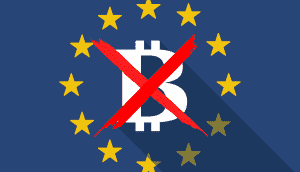The legislator has submitted: Since the beginning of 2020, crypto assets have been more tightly regulated with the implementation of the 5th EU Money Laundering Directive. With the so-called crypto custody business, a new financial service subject to authorization was created. The commercial custody of cryptocurrencies and cryptotokens now requires a BaFin license. According to BaFin, Bitcoin and other cryptocurrencies are financial instruments that are subject to German financial supervision in accordance with section 1 (11) sentence 1 no. 10 KWG.
Since the law currently in force differs greatly between the EU member states, the European Union (EU) is also pushing ahead with the regulation of crypto assets. This is positive for the industry: Legal certainty through regulatory framework conditions for trading and custody of digital assets promotes the seriousness and maturity of the market and offers institutional investors in particular the necessary security for long-term investments. The regulation of the crypto market is therefore in the interest of the industry itself. However, this is not comprehensively organized to adequately represent its own interests.
read too
MiCA causes irritation in the crypto space
In the MiCA directive, MEPs wanted to ban the provision of crypto services based on “environmentally unsustainable consensus mechanisms”. This would have meant a de facto EU-wide ban on Bitcoin and other proof-of-work-based cryptocurrencies and would have denied local crypto companies access to these technologies. In practice, this would have had serious consequences for the crypto economy, which has only just begun to gain a foothold in Europe. The result of the vote in the EU Parliament on a virtual ban on Bitcoin was narrow with 32 to 24 votes.
Virtually nothing was heard from the Space itself in the legislative process, and the discussion is not over. The Markets in Crypto Assets (MiCA) regulation was presented for the first time in September 2020 and is intended to ensure EU-wide uniform rules for the trading and custody of crypto assets. MiCA is expected to come into force in all member states in the course of this year. The new regulation will have particular effects on trading venues, service providers and issuers – they will then have to comply with a statutory information obligation.
Crypto industry is hardly heard
The example of the MiCA regulation shows that something has to change in the industry as soon as possible. Crypto companies get little or no attention in the current debates and are not organized enough to work together for their interests. Misunderstandings and going it alone are currently shaping the picture in the industry. There is a lack of basic coordination and a common strategy. It will probably not be that bad after all, is often heard from the industry. If the automobile lobby were to deal with regulatory issues in a similarly careless manner, motor vehicles would have been banned in this country long ago.
time to act
Hurry: The last word on the MiCA issue has not yet been spoken, so the parliamentary representatives still have to enter into negotiations with the EU member states with their final draft law. Regulation is not the danger for the emerging crypto economy – the risk of the industry is that due to a lack of unity and limited influence, especially in debates and legislative processes, not enough attention is paid. The crypto companies now have to wake up from their slumber as quickly as possible.
Cooperation and communication are now needed to safeguard one’s own interests. Crypto companies, banks and financial service providers have the opportunity to expand their innovative strength, digital services and crypto offerings and thus contribute to strengthening Germany as a financial location. The regulation of the markets, with uniform standards and rules across Europe, could create a bridge between the traditional financial center Germany and the still young crypto market. For its part, the EU has the opportunity to set international standards for the regulation of crypto assets and to be one of the first major economic areas to establish innovation-friendly crypto regulation. However, this does not work against, but only in dialogue with the interests of the industry.
About
Julian Saal, senior account executive, finance and crypto expert at the consulting firm Edelmanhas been working intensively on the crypto market as a consultant for technology and financial issues for many years and advises international companies in the areas of communication and public relations.
Cryptocurrency tax filing made easy
In the BTC-ECHO guide, we show you the best tools for automatically and easily creating crypto tax reports.
To the guide
